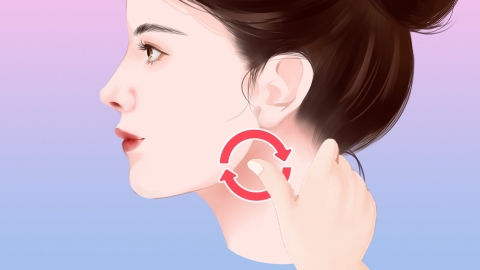What are the treatment methods for hypothyroidism?
Generally, the main treatment methods for hypothyroidism include lifestyle modifications, dietary adjustments, hormone replacement therapy, etiological treatment, and symptomatic supportive treatment. The details are as follows:
1. Lifestyle modifications
Patients should keep warm in daily life to avoid cold stimulation that may worsen physical discomfort. Maintain regular作息 (作息 should be translated as "作息" here, but since it's not a standard English term, it could be interpreted as "sleep-wake cycle" or "daily routine"), avoid staying up late, and ensure sufficient sleep to create favorable conditions for hormonal regulation. Engage in mild physical activities such as walking or yoga to promote blood circulation, enhance metabolic capacity, and assist in alleviating symptoms such as fatigue and excessive sleepiness, helping the body better adapt to treatment.

2. Dietary adjustments
Dietary modifications should be based on the patient's specific condition. If hypothyroidism is caused by iodine deficiency, iodine-rich foods such as kelp and nori can be appropriately increased to provide raw materials for thyroid hormone synthesis. If it is caused by autoimmune diseases such as Hashimoto's thyroiditis, excessive intake of high-iodine foods should be avoided to prevent exacerbating thyroid tissue damage. At the same time, adequate intake of nutrients such as protein and vitamins should be ensured, and foods that may interfere with thyroid hormone synthesis, such as cabbage and radishes, should be avoided.
3. Hormone replacement therapy
Hormone replacement therapy is the core treatment for hypothyroidism, compensating for the body's deficiency in thyroid hormones by supplementing exogenous hormones. Patients can take medications such as levothyroxine sodium tablets, levothyroxine sodium capsules, or thyroid tablets as directed by a physician. These medications can mimic the normal functions of thyroid hormones in the body, maintain metabolic balance, alleviate symptoms such as fatigue and cold intolerance, and help restore normal physiological function.
4. Etiological treatment
Appropriate treatment measures should be taken according to the underlying cause. If hypothyroidism is caused by thyroid surgery or radioactive iodine therapy, long-term hormone replacement therapy is required. If it is caused by pituitary disease leading to insufficient secretion of thyroid-stimulating hormone (TSH), the pituitary condition should be treated first—for example, patients with pituitary tumors may require surgical removal of the tumor to restore normal pituitary secretory function, thereby improving hypothyroidism.
5. Symptomatic and supportive treatment
Hypothyroidism may lead to complications such as anemia and abnormal blood lipids, which require symptomatic management. Patients with anemia can take medications such as ferrous sulfate tablets, ferrous fumarate chewable tablets, or vitamin B12 tablets as directed by a physician to correct the anemia. Patients with lipid abnormalities can take lipid-regulating medications such as atorvastatin calcium tablets or rosuvastatin calcium tablets under medical guidance to reduce the physical damage caused by complications.
In addition, patients should undergo regular follow-up tests of thyroid function during treatment, and adjust the treatment plan according to the test results. Medications must be taken strictly as prescribed, and dosage should not be altered without medical advice. If symptoms suggestive of hyperthyroidism such as palpitations or excessive sweating occur, prompt medical attention is required.








